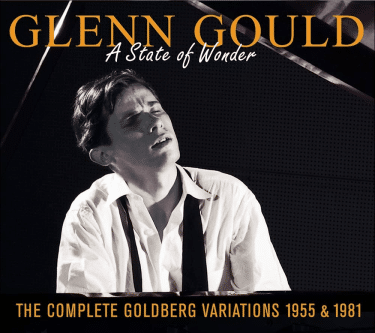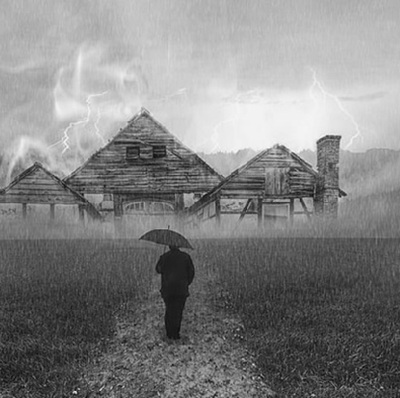.
.
“The Goldberg Variations” was a short-listed entry in our recently concluded 65th Short Fiction Contest, and is published with the consent of the author.
.
.
___
.
.

The Goldberg Variations
by Victoria C. Roskams
.
.
…..“Shut that door, Mr Goldberg.”
…..It was actually her door – it was her dorm – but he went ahead and did as she said anyway. When she used his surname like that it was best to.
…..Now Marcie was taking off her little suede jacket and hanging it carefully on the back of the door. She brushed his hand as she went past, as if by accident, but he knew it was deliberate because then she held it there for a while and grasped his fingers, turning him round and pulling him further in to the room. So this was Marcie’s room. It wasn’t vast. Nick supposed all the girls at college lived in rooms like this: neat little desk, neat little bookshelf, neat little bed. It wasn’t a bit like his mom’s or sister’s rooms back home, no lush draperies, no big dresser with all the perfume bottles and make-up brushes laid out on top. Where did Marcie hide them all? he wondered. She sure wore perfume. The room was heavy with the scent of it. She sat down on the bed and patted the quilt beside her. Go on, then: it was best to.
…..So this was Marcie’s bed. Sure. Nick’s fingertips pressed against a mattress that was unexpectedly hard and thin. He hadn’t even realised you could tell how thin a mattress was like that. What was he, the Princess and the Pea? Marcie must be aching all the time. Limbs pinker than the eiderdown quilt. Opposite the bed, on the desk, was a record player and a tidy stack of records. Marcie rose to choose one. A little ambience – yes, that would be just the thing.
…..“I know…” she said with slow decision, fingering through the stack, “you’ll have to like this. Just see if you don’t.” She slid the record out of its sleeve, set it on the turntable, and very carefully lifted the needle, bringing it down gently on the vinyl’s thick edge. The machine crackled gleefully as she propped the record sleeve up against the wall. It showed a dozen or so sepia photos of some guy in his shirtsleeves, outtakes maybe, like they hadn’t been able to fix on just one; but, there he was, over and over, ‘Glenn Gould’, it said, ‘The Goldberg Variations’.
…..As Marcie sat back down, the needle slid into its groove and a great lash of piano notes rushed into the room, cold and precise, whipping and whipping.
…..“Two guesses why I chose the ‘Goldberg Variations,’ Mr Goldberg,” Marcie said, taking his hand again. She was warmer than the music, clammy almost, but he held her hand anyway while she fixed her eyes on him. “You know Glenn Gould recorded this when he was twenty-two? Isn’t that crazy? I mean, we’ll be twenty-two before you know it. Isn’t that crazy?” With a little sigh, she lifted her legs and placed them over Nick’s. He supposed they must be in a compromising sort of position now. Sure enough, her lips were a little closer to his, and now she was brushing his lips with her own between every phrase she was saying, and all the while Gould was marking out the time. “What do you think it’ll be like – when we’re twenty-two? When my mom – was twenty-two – she and Pop were married and they had three of us already. Just imagine! I mean – the thing is –” Jesus, when were either of them supposed to breathe while all this was happening? – “it would be nice, all that, I mean –” was Gould purposefully going over and over that theme every time Marcie hesitated? This could drive a man to his limit – “maybe camellias for the table decorations, and a pink and gold theme – gold for Goldberg, you see – and that would go so nicely with my hair. Although, there’s the bridesmaids…but that could still change, don’t you think? I mean who’s going to be bridesmaids, not the colour scheme!” She tittered.
…..Dear God, one of her hands was pressing the back of his shoulder, over and over, as if playing his bones like piano keys. Who’d play the piano like that anyway, so hammy? Not this Glenn guy. Nick looked at the record sleeve over Marcie’s shoulder. He kind of had something, this Glenn. Sleeves rolled up, ready for action, pointing here and there as if he had shit to do and only he could get it done. Yeah, he was the man, this Glenn. To tell the truth, Nick hadn’t been crazy about going back to Marcie’s tonight at all. It had been neither here nor there to him. He’d hoped they could go for a nice dinner and that would be it. He could head back to his dorm, where somebody was sure to have that new record by the Velvet Underground. He didn’t think much of Andy Warhol or the whole banana schtick, but there was something about that Lou Reed dude. And the music! It went through him like an electric shock. Still, Nick guessed he could dig Bach. All the coolest musicians were saying they did. It was cool to be classical now, cool to admit you liked it, didn’t mean you couldn’t still rock. Hey – he’d seen Lenny Bernstein on TV.
…..Marcie was all over him now. Arms like an octopus, no muscle anywhere. The hard bed wasn’t giving at all under their rhythmic movements. Gould was still tapping away too: the tempo of both was fast, too fast. But what was that – could he hear a man’s voice? Ever so muffled, a kind of groaning? Was someone there?
…..“Oh, that’s just Glenn,” said Marcie, her deft hand moving up and down Nick’s thigh. “He’s notorious for humming along to his recordings. No one could stop him.” He knew the feeling. “You know, Bach – the composer – had twenty children. Two wives, of course. Maybe it’s too early to have this conversation –”
…..Her words faded away into blissfully dim harmony with the pitter-patter of the piano notes, cresting along over incessant arpeggi. Jesus. A man’s fingers might get tired. His lips might – all that humming. But it really did sound like that guttural noise was coming from somewhere near them, inside the walls, even. Nick looked at Gould on the record sleeve. Those were some arms. Maybe there was something in all those arpeggi after all.
…..“I mean, all of us college girls, it’s like we pretend we don’t want it, just because we’re at college, and we’re supposed to want to make something of our lives –”
…..God, it was like he’d stubbed his toe, the way this guy was groaning. Going on and on like someone’s uncle dressed in a bedsheet playing a crappy Halloween ghost. It seemed to be anchoring him, though. The music was tight. It must be hard to keep up this tempo without it just spinning out completely. But – there it was again – he was sure the man’s voice was coming from over there, and the music was coming from just here – wasn’t it?
…..“You are funny, Nick – so paranoid! That’s just Glenn – I told you. It’s kind of his thing. You know, they say that as a baby he hummed instead of crying. Isn’t that precious?” Her eyes twinkled. “His mom was so set on him being a musician that she started him early, played him music while he was in the womb. He could read music before he could read words,” she said triumphantly. “It does give you ideas – I mean – doesn’t it? Oh – imagine…”
…..Was she making little noises now, soft, covert, rhythmical? He had to admit that letting her straddle him might have brought things to this pass. It was what it was. No, he could really get into this Bach stuff, he thought. There was something scrupulous about it. Gould really knew what he was doing. It was like he’d clambered on top of the score, really sat on it, got it right under him, and set it going somehow. You could do that. Yeah. Still, it would be kind of cool if it had words, and not just this meaningless hum. There was something poetic under it all, Nick thought. His ears pricked up as Marcie’s words re-entered his wavelength.
…..“Gould described the ‘Goldberg Variations’ as ‘music which, like Rimbaud’s lovers, “rests lightly on the wings of the unchecked wind”’. Isn’t that neat? I always used to read that quote on the liner notes while I listened to this in Pop’s room, and think about Rimbaud’s lovers…”
…..It was Baudelaire’s lovers, of course – she thinks, just because I’m an economics major and she studies literature, that I don’t know these things, he thought. It’s Baudelaire. And this music didn’t seem to rest so lightly just now – he didn’t feel so light himself. That was all well and good for Gould, but he didn’t have a fully-grown woman sitting on his lap. Did he? Nick stole another glance at the record sleeve. Some arms – some fingers.
…..Nick was really reaching his limit with these noises. The little room was beset on all sides by this groaning, this clanking. He stood up abruptly. He was really going to have to take a look around – in the cupboards, even, if he had to. What if he were to find another man? It didn’t bear thinking about. Then he’d really be mad. Then he’d be out of there. He’d never look back. He wouldn’t be able to take her back after a scene like that. No more nights like this – just him and his dorm buddies and this Lou Reed character with his poetry. Well, it might not be so bad.
…..It didn’t take long to stalk around the dorm in impersonation of a jealous lover, the room being so oppressively small. That done, and the sound of a man’s grunting still unabating, there was nothing for it but to go to the door. Either he would get to the bottom of this, or he would leave.
…..“But Nick, I promise you – that noise is coming from the record. It’s on the recording – I must’ve listened to it hundreds of times! You have to believe me! It’s just Glenn!”
…..That may be; he couldn’t let this lie. Clear as day, he had heard singing and scuffling in the very vicinity of this room. As he turned the door handle, the record reached its end and a hoarse, sparse scratching filled the room like an explosion in a vacuum. Outside the door was a man in a long winter coat, a fetching red scarf, and thick woollen gloves. A mighty handsome man, it had to be said.
…..“Why, if it isn’t Glenn!”
.
.
___
.
.

Victoria C. Roskams writes short fiction about the arts and the uncanny: exploring the strange lives and afterlives of artists and artworks. Beyond fictional writing, she pursues academic research interests in various kinds of writing about music, especially the intersections of fictional and non-fictional writing, and with a focus on the nineteenth century. She lives and works in Oxford, UK.
.
.
Listen to Glenn Gould play Bach’s Goldberg Variations, BWV 988: Aria [Sony Music Entertainment]
.
.
.
___
.
.
Click here to read “Ballad,” Lúcia Leão’s winning story in the 65th Jerry Jazz Musician Short Fiction Contest
Click here to read more short fiction published on Jerry Jazz Musician
Click here to read The Sunday Poem
Click here for information about how to submit your poetry or short fiction
Click here for details about the upcoming 66th Jerry Jazz Musician Short Fiction Contest
Click here to subscribe to the Jerry Jazz Musician quarterly newsletter (it’s free)
Click here to help support the continuing publication of Jerry Jazz Musician, and to keep it ad and commercial-free (thank you!)
.
.
___
.
.
Jerry Jazz Musician…human produced (and AI-free) since 1999
.
.
.















































